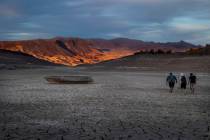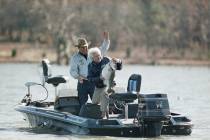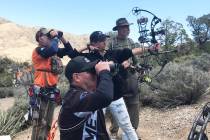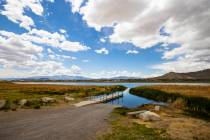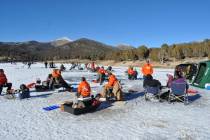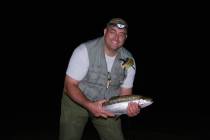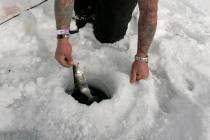Boaters must hope Congress snuffs out EPA permit plan
Whether they use their vessels for pleasure-cruising, fishing or waterskiing, recreational boaters soon might find they need a permit from the Environmental Protection Agency before they can launch a boat on their favorite waterway. The fees for this court-mandated permit will be in addition to any registration fees, state taxes or launching fees boaters already are paying.
Unless the Clean Boating Act of 2008 is passed by Congress this summer, the EPA will implement this requirement by the end of September. Called an EPA discharge permit, this document will allow recreational boaters to discharge any water that finds its way into their boat back into the water it came from. The permit will be required whether you own a canoe, bass boat or small sailboat. Anyone who has ever been on a boat knows you can't operate one without getting at least a little water inside the vessel.
"Can you imagine having to get a permit from the U.S. EPA or your state government to 'discharge' water that washes into the boat or across the deck back into the very pond or stream from which it came?" asked the Izzak Walton League of America, one of the country's oldest conservation organizations, in a recent media alert. "If a federal court ruling from California stands, you won't have to imagine it -- it will be reality."
The ruling in question was handed down in the fall of 2006 by the U.S. District Court of California, in response to a lawsuit filed against the EPA in 1999. The lawsuit, according to the Boat Owners Association of America (BoatU.S.), was an attempt by environmental groups "to control the spread of aquatic nuisance species by mandating the treatment of ballast water in large commercial ocean-going ships."
An aquatic nuisance species is something such as the quagga mussel, which was found in the lower Colorado River system in January 2007 and is causing significant ecologic and economic problems in the Southwest. The mussels were first introduced into U.S. waters when oceangoing ships traveling here from Eastern Europe dropped their ballast water in the Great Lakes.
Unfortunately, as is often the case when courts legislate from the bench, the District Court's decision could have impacts reaching much further than originally intended. These include increased administrative paperwork and increased operational costs at a time when recreational boaters already are paying record prices for gasoline. In this case, the decision will impact many boaters whose vessels will never see an ocean, let alone be designated as oceangoing or commercial.
And should they be handed the responsibility for implementing the discharge permit program on a local basis, state boating agencies could experience a significant increase in the cost of doing business at a time when agency budgets are experiencing significant cuts.
According to BoatU.S., the court's ruling effectively put an end to the EPA's 34-year-old practice of exempting discharges from recreational boats from the Clean Water Act permit system, which was created to deal with pollution issues associated with factories and sewage treatment plants. The court was either unaware of or simply ignored the list of federal regulations that already protect the environment by restricting the overboard discharge of oil, fuel, garbage and sewage from recreational vessels.
"If the permit system becomes a reality, you will be required to pay for a state permit for each of your boats. EPA will be potentially monitoring your deck runoff, grey water, bilge water, engine cooling water, and the use of copper bottom paints," noted BoatU.S. "Keeping our waterways clean and preventing the spread of invasive species is of utmost importance to the future of boating. But taking a complex permitting system designed for industrial dischargers and applying it to recreational boats will not yield significant environmental benefits, and it will come at a very high cost."
As introduced by Sens. Barbara Boxer and Bill Nelson, the Clean Boating Act of 2008 will provide a legislative fix to a problem created by the overzealous court. If passed, this bill (S. 2766) will provide recreational boaters with a permanent exemption from the EPA discharge permit requirement. A sister bill (H.R. 5949) is making its way through the House of Representatives.
Doug Nielsen is an award-winning freelance writer and a conservation educator for the Nevada Department of Wildlife. His "In the Outdoors" column is published Thursday. He can be reached at doug@takinitoutside.com.








